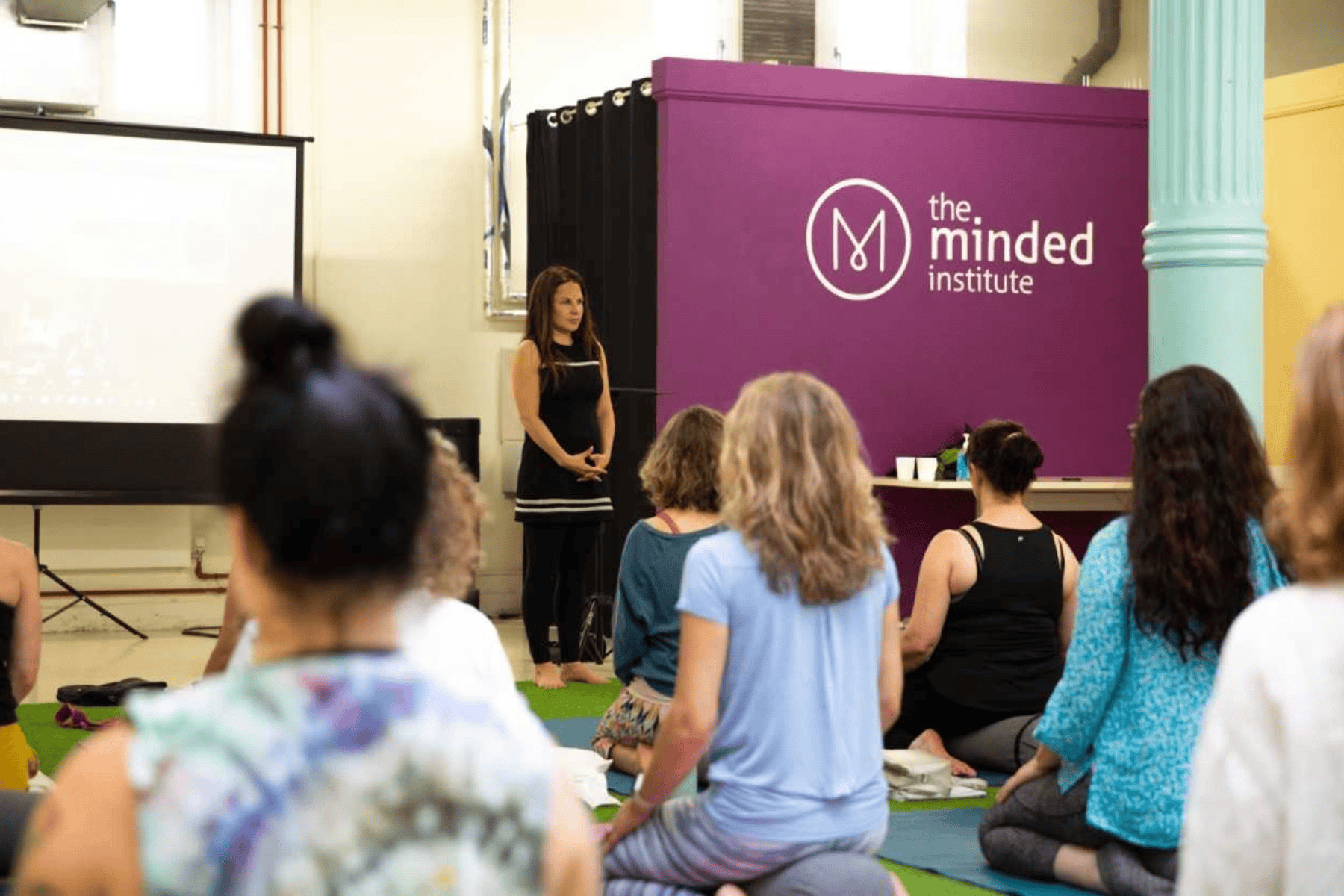
Have you heard of Yoga Therapy?
It’s an emerging healthcare profession - By The Minded Institute
Reading time: 3 minutes
Informed by yogic philosophy, yoga therapy is an emerging health profession which upholds physical, mental, energetic, behavioural, and social characteristics; all are inherent components of health, and the treatment of health conditions must consider all these domains. Yoga therapists are increasingly sought after by healthcare teams, hospitals, and private clients because a biopsychosocial approach, which is seamlessly reflected throughout the yoga therapy paradigm, is more cost-effective and associated with better health outcomes.
Yoga therapy includes the therapeutic application of yoga practices to health conditions, but its scope is much wider, integrating skills and insight from a host of other professions. Consequently, yoga therapy provides an extensive lens and comprehensive interwoven toolkit that can redress the root causes and symptoms of mental and physical health conditions. Those wishing to become yoga therapists must undertake a two-to-three-year accredited diploma course to develop this broad swathe of knowledge.

Generally, training courses only enrol experienced yoga teachers. However, some programs, such as the one offered by The Minded Institute, may take health professionals. The curricula of accredited programs include the psychophysical-energetic effects of different yoga techniques, the well-informed application of these practices to health conditions, psychotherapeutic skills, basic medical knowledge, some physiotherapeutic skills, and the kosha model as the vista for assessment and treatment.
The kosha model maintains that the human being is comprised of five different interrelated aspects or “sheaths”; the physical, the breath/energetic, the mental, the wisdom, and the bliss sheath. Dysregulation in one, engenders imbalances in the others. For example, if a client is experiencing anxiety, the mind is seen as the primary sheath afflicted, but anxiety also impacts a client’s access to joy/bliss and to clear and wise thinking. Additionally, sleep and self-care may be compromised, affecting health; the shoulders are likely to be chronically elevated, causing pain; and the autonomic nervous system is probably dysregulated. These factors then have a negative effect on energy levels and breathing patterns and vice versa, and all conspire to further augment mental distress. Therefore, when a client presents with anxiety (or any health complaint), the therapist explores its manifestation across all koshas and creates a treatment plan that addresses the collection of problems engendered by, and contributing to, anxiety.
As a cornerstone and a defining feature of yoga therapy the kosha model is taught by all training schools. However, schools may espouse different approaches or areas of focus. Notably, some programs teach a prescriptive methodology, while others embrace a client-centred model. In the client-centred approach, yoga therapists inquire how health complaints present in all aspects of one's life. The yoga therapist may also assess the breath and posture, discuss the client’s immediate and long-term goals, the client’s comfort with certain practices, and motivation to engage in yogic practices outside of the session. Accordingly, a treatment plan is co-crafted with the client.
The Minded Institute’s diploma in yoga therapy is firmly grounded in the client-centred model, helping trainees cultivate a robust set of psychotherapeutic skills. This includes, but is not limited to, building a strong therapeutic alliance and picking up on non-verbal cues and body language, to attune to client’s experience and needs. In fact, because The Minded Institute’s yoga therapy diploma places such emphasis on therapeutic skills, its yoga therapy training was recognised by the National Council of Integrative Psychotherapists as the foundation for a full psychotherapy diploma. With an additional year of teaching focused solely on psychotherapy, followed by 18-24 months of clinical work, yoga therapists can train with The Minded Institute to become qualified psychotherapists; it’s the only program in the world to offer this dual qualification.

As a highly academic training, The Minded Institute’s yoga therapy diploma is also renowned for its deep dive into neuroscience and physiology, scientific research, psychoneuroimmunology, anatomy, and a wide variety of health conditions. Accordingly, Minded graduates are primed to become pioneers in yoga therapy, or for those who entered through the health provider route, to pursue the deeper integration of yoga therapy into a pre-existing profession.
Minded graduates and other expert yoga therapists shape and expand the field of yoga therapy. Its profoundly holistic, client-centred approach to wellbeing places yoga therapy at the vanguard of inclusive and comprehensive treatment. With health systems overburdened by the vast numbers of people presenting with one or more long-term complex health conditions, yoga therapy is becoming an increasingly attractive intervention. Correspondingly, major institutions such as the NHS, the UK prison system, The Cleveland Clinic, and The Veterans Association (USA) are hiring yoga therapists. We believe this trend will grow exponentially, as awareness spreads and healthcare recognises that yoga therapists are uniquely suited to meet the increasing demand for integrative care. At The Minded Institute, we watch this evolution with enthusiasm; ready and honoured to train the next generation of pioneers within this field.
Speak to the The Minded Institute team at The OM Yoga Show: Stand E8





